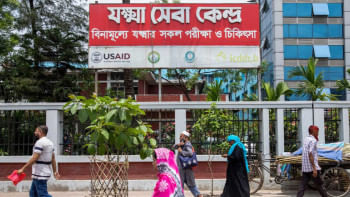Check food adulteration, price manipulation
Speakers at a programme yesterday underscored the need for enhancing market monitoring activities to check any price manipulation and adulteration in food items.
They said this at the seminar organised by Dhaka Chamber of Commerce and Industry (DCCI) on "law and order situation and price control of essential commodities during holy Ramadan" on its premises in the capital.
The DCCI organised the seminar to create awareness among different stakeholders, as a section of unscrupulous traders make a hefty profit ahead of this month by artificially increasing the prices of goods.
In his keynote presentation, Dr Zia Rahman, chairman of criminology department at Dhaka University, termed the dishonest traders "unholy nexus" who actually try to manipulate the open market.
This syndicate creates a gap between demand and supply of essential commodities, he said.
Referring to a survey by the Institute of Public Health (IPH), Prof Zia said food adulteration was found in 30 out of 51 tested food items ahead of last Ramadan that were dangerous for human health.
Before the last Ramadan, the IPH randomly collected 640 samples of 51 different kinds of food items. It found that adulteration took place in 183 samples of 30 different food items, said Zia.
The highest adulteration took place in the case of soybean oil, he said. In the soybean oil, adulteration was found in 21 out of 28 samples, said Zia.
“In case of sweetmeat, all 32 samples were adulterated,” he said. Besides all these samples, adulteration was found in all the samples of salt, powdered turmeric, honey, molasses, biscuits, pulses, vermicelli, jelly, ghee and dalda.
The practice of selling adulterated food items is still there in the absence of a proper monitoring system, he said.
Prof Zia urged for establishing a "Fair Price Monitoring Cell" to monitor the unscrupulous traders for ensuring due punishment.
He also urged the government to properly implement the "Protection of Consumer Rights Act" and "Bangladesh Safe Food Act".
Speaking at the programme, Home Minister Asaduzzaman Khan urged the businessmen to do their business in an ethical manner throughout the year especially during the month of Ramadan.
“The government will show zero tolerance to the extortionists no matter he or she is a police official or civilian,” according to a DCCI statement.
The minister also said the law and order situation during the month of Ramadan this year will be under control like the previous years'.
Mobile courts will also be in operation this year to prevent food adulteration, he said.
Abul Kasem Khan, DCCI president, said according to the Trading Corporation of Bangladesh (TCB), prices of essential commodities have been increased to 17.51 percent between April and May in 2017.
The reasons behind this price spiral were traditional supply chain management, unabated stocking, lack of market monitoring, extortion in transportation sector, excessive traffic congestion, increase of transportation cost, said Abul Kasem.
Ghulam Rahman, president of Consumers Association of Bangladesh, said sometimes despite stable price in the international market, food price goes up in the local market only due to a sudden rise of US Dollar.
He said huge traffic jam and container congestion in the port are some of the reasons behind the price spiral.

 For all latest news, follow The Daily Star's Google News channel.
For all latest news, follow The Daily Star's Google News channel. 



Comments